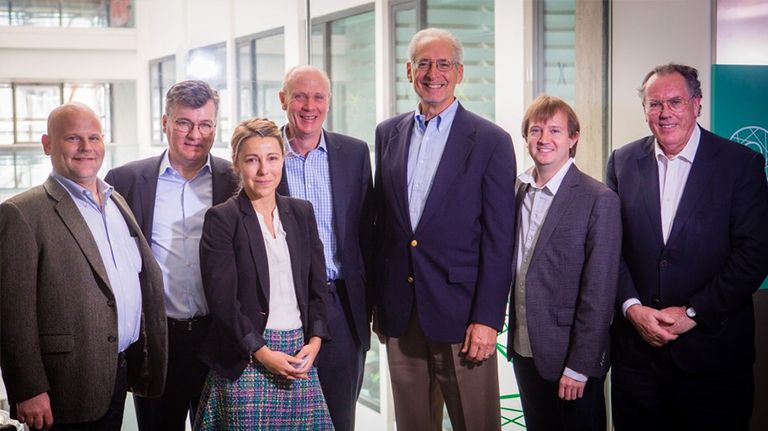SynbiCITE and Imperial College London provides a launch pad for synthetic biology start-ups

Imperial College London hosted the Lean LaunchPad for Synthetic Biology, a twelve-week programme designed to equip inventors with the skills, knowledge, and understanding needed to commercialise their ideas.
To mark the programme’s completion, participating teams presented their business models and shared insights gained through the process. Congratulations were extended to the six teams that successfully completed the programme:
- Advance Syn Studio
- Biowater Solutions
- Cellibero
- Chain Biotech
- Etal Skincare
- Nanocage Technologies
This was the first time the Lean LaunchPad, originally developed by US entrepreneur Steve Blank, was introduced in the UK for synthetic biology. Mr. Blank, recognized by Forbes in 2013 as one of the most influential people in tech, pioneered the Customer Development methodology, which emphasises customer feedback in product development.
The programme encouraged participants to engage with target customers, refining their business plans and products based on real-world insights. Organised by SynbiCITE and Imperial College London, it aimed to bridge academia and industry, accelerating the development of synthetic biology technologies. The programme was open to students, researchers, and members of the initiative’s academic and industrial partners.
One team, Cellibero, composed of Imperial postdoctoral researchers Dr. Richard Kelwick, Dr. James MacDonald, and Dr. Lorna Ravenhill, presented molecular biology education kits. These kits featured a cell-free system—a freeze-dried mix of non-living cellular machinery and DNA activated by water to produce proteins or enzymes.
Nanocage Technologies, including Dr. Geoff Baldwin from Imperial’s Department of Life Sciences and PhD students Marko Storch, Ben Mackrow, and Matthew Haines, showcased their concept of using protein nanocages as a targeted drug delivery system. These nanocages, with a hollow core capable of carrying compounds, could deliver toxic therapies, such as cancer drugs, directly to affected cells, reducing side effects.
Following their final presentations to an audience of funders, investors, and journalists, four teams—Chain Biotech, Cellibero, Biowater Solutions, and Nanocage Technologies—were invited to present at the opening session of SynBioBeta. This international conference, held at Imperial, brought together thought leaders, entrepreneurs, and academics to discuss developments in synthetic biology.
SynbiCITE, led by Imperial’s Professor Richard Kitney and Professor Paul Freemont, played a key role in bringing the Lean LaunchPad for Synthetic Biology to the UK. Professor Kitney, inspired by attending a session in San Francisco in 2013, collaborated with Steve Blank and Jerry Engel to tailor the course for the UK’s synthetic biology community.
Professor Freemont emphasised that successful commercialisation relies on understanding customers, a core principle of the Lean LaunchPad methodology. He expressed pride in the participating teams, noting their significant progress in a short period.
Stephen Chambers, Chief Executive of SynbiCITE, highlighted the programme’s impact, stating that it helped teams quickly assess commercial viability, saving time and resources. He praised their ability to develop scalable business models within twelve weeks and anticipated that several teams would go on to establish successful companies.
SynbiCITE announced plans to run the Lean LaunchPad for Synthetic Biology again in the autumn and encouraged interested participants to contact Helen Findon, Communications and Outreach Manager at SynbiCITE.